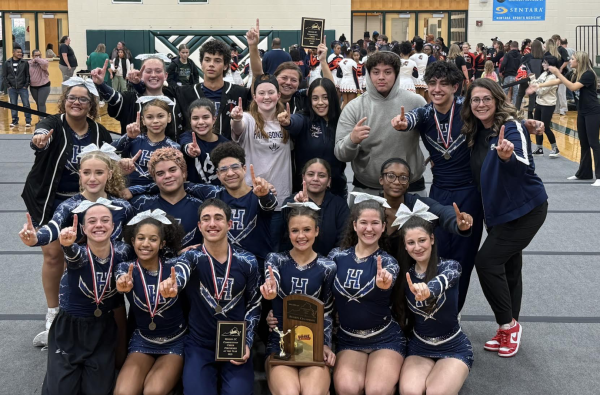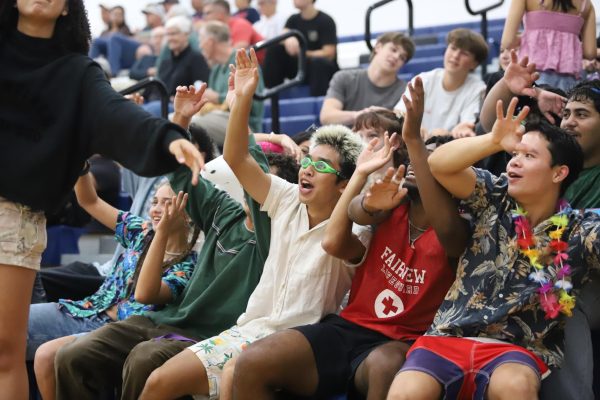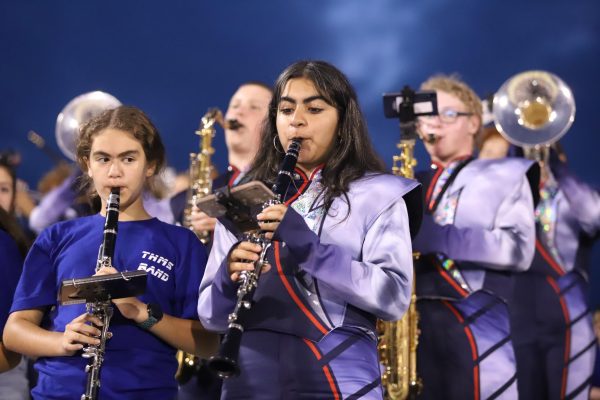Krasheninnikov acquires multiple languages, learns more as hobby
Photo Courtesy of Valeri Krasheninnikov
Senior Valeri Krasheninnikov spends time in Israel with her family. Valeri Krasheninnikov was born in Israel and moved to the United States five years ago. She currently is fluent in Hebrew, Russian and English.
Russian at home, English at school and Hebrew in public.
One of the toughest things senior Valeri Krasheninnikov has ever done is equally keep up with those three languages. Krasheninnikov would say that the process of learning each language was natural, but maintaining them throughout out her life has brought a few difficulties.
Krasheninnikov learned her first language when she was born in Israel. Her trilingual journey started out with Hebrew and then later adding Russian and English into her everyday diction. Krasheninnikov learned English when she was back in Israel, but only knew how to form a few sentences and could not hold a full conversation. Her English has since improved after moving to the United States five years ago and landing a home in Harrisonburg.
“People are [usually] like, ‘You are not American? You don’t even have an accent,’” Krasheninnikov said.
Krasheninnikov learned Russian because her parents were immigrants and moved to Russia from Uzbekistan. They made her learn Russian and also keep in touch with Hebrew as well.
“At the time, the whole Soviet Union basically spoke Russian and because my mom is Jewish, they moved to Israel and [at] that point they did not know Hebrew at all. [In] my household [in Israel], we strictly spoke Russian… [My parents] encouraged Hebrew outside of the house,” Krasheninnikov said.
Krasheninnikov is the middle child between an older and younger brother. Her siblings speak just as many languages as she does, except for her younger brother who has forgotten Hebrew. Out of all three languages, Krasheninnikov speaks Russian the most. While English is spoken at school and Russian is spoken at home, Krasheninnikov doesn’t really have a place to speak Hebrew as much as she did when she lived in Israel.
“It’s really tough [keeping up with Hebrew]. I tried going to the synagogue here, but they don’t speak Hebrew… they just speak English in synagogue. The prayers are in Hebrew, but they’re not spoken in traditional Hebrew,” Krasheninnikov said. “The only way I can talk to people is through old friends from Facebook, and that’s through texting, or to my brother, but he wants to practice his English with me, so he doesn’t want to speak [Hebrew as often].”
Going beyond the three languages she is heavily familiar with, Krasheninnikov is learning new ones. Krasheninnikov took Arabic last year and is currently in Spanish 5. She is also taking a Japanese language course online. In the future, she plans to learn Korean, German and Chinese. With each language Krasheninnikov learns, she believes the overall process of learning a new one becomes easier.
“The more languages you know, the easier it is to learn other languages. For example, if you know English, it’s easier to learn Spanish. With more languages, it kind of accustoms you to know all of the other languages,” Krasheninnikov said.
From interpreting for her parents to having the opportunity to include the amount of languages she knows in essays and resumes, Krasheninnikov has not only found being trilingual to be beneficial to her, but also an enjoyable thing that she can do.
“I feel like it’s one of my hobbies, maybe even passions in life. It’s one of the things that really interests me and it connects me to other people,” Krasheninnikov said. “Even though I’m a little bit anti-social, it kind of makes me feel more belonging into society.”
Your donation will support the student journalists of Harrisonburg High School. Your contribution will allow us to purchase equipment and cover our annual website hosting costs.












